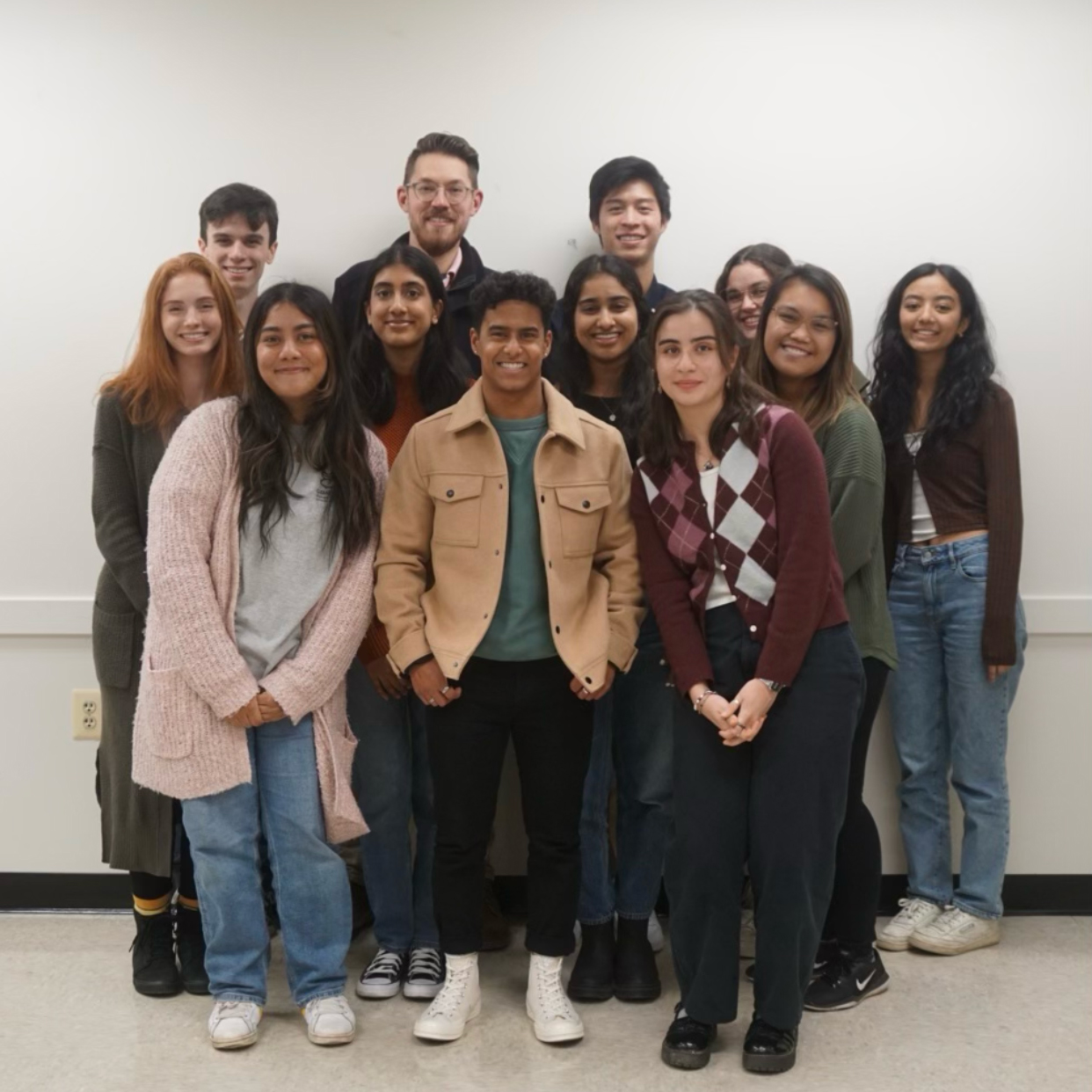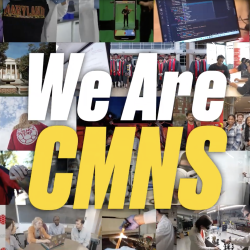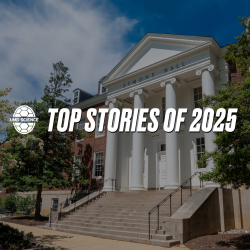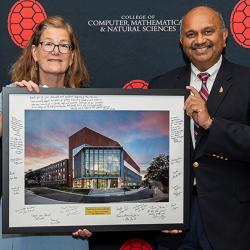UMD Undergraduates Investigate Medical Merits of Common Mushrooms
The Gemstone Honors students are researching whether common varieties of mushrooms can prevent infections linked to medical implants.

University of Maryland biochemistry major Ranita Chowdhury was working in Chemistry and Biochemistry Assistant Professor Myles Poulin’s lab one day when an unusual shipment arrived.
“The grad students in the lab asked us, ‘Are you cooking in here? Why do you have shiitake mushrooms?’” recalled Chowdhury, who will begin her senior year in the fall.
Besides being a beloved pizza topping, shiitake and other common mushrooms have shown promise in medicine, thanks to their wealth of bioactive compounds. For their four-year research project in the Gemstone Honors Program in the Honors College, Chowdhury and 10 other students are investigating whether mushrooms can help prevent infections in patients with mechanical heart valves, urinary catheters, artificial joints and other surgically implanted devices.
Though medical implants are becoming more advanced, infection is still an inherent risk. Bacteria inadvertently introduced during surgery can form a slimy biofilm on the surface of an implanted medical device. In severe cases, these biofilms can cause life-threatening infections that are resistant to antibiotics. As a result, a follow-up surgery may be needed to remove the device, but even that may not prevent further infection.
“Infections require the implants to be taken out, but that doesn’t guarantee that an infection will not reoccur,” Chowdhury explained. “We want to decrease the cost for the patient as well as the hospital by creating a solution so that these infections don’t occur in the first place.”
The student researchers, dubbed Team Fungi, are working to identify fungal extracts that could act as a sterilant or disinfectant when applied to a medical device, preventing biofilms from forming. To date, no biofilm sterilants have been approved by the U.S. Food and Drug Administration, but it is an active field of research.
In recognition of their novel research, Team Fungi was named one of three winners at the 2023 Gemstone Do Good Showcase and received a University Libraries Award for outstanding Gemstone teams that same year.

While their research is already attracting interest, Team Fungi didn’t initially set out to study biofilms. Inspired by the documentary “Fantastic Fungi” that debuted in 2019, team member Annette Eldo, who will be a senior neuroscience major in the fall, suggested researching whether mushroom extracts could help treat cancer.
“Like most Gemstone teams, we evolved based on what resources are available as well as what is feasible,” Chowdhury said. “We shifted from cancer to bacteria because we saw that it is probably not feasible to cure cancer within three years, but also because our mentor Dr. Poulin’s lab has access to bacterial strains.”
The team has been experimenting with different methods of taking extracts from three common mushroom species: shiitake, turkey tail and shaggy mane. All of their mushrooms are organic and grown in the United States, but they are also widely available in other countries.
“If this were to become an approved sterilant, it can be used worldwide because these are mushrooms that we can find anywhere,” said team member Lili Bao, an incoming senior biological sciences major.
The team plans to test its mushroom extracts against several species of bacteria, including two common sources of infection: Escherichia coli (E. coli) and Staphylococcus aureus (staph). While their experiments are ongoing, early attempts to inhibit the growth of biofilms have been encouraging.
“Qualitatively looking at the bacterial growth, we’ve seen a decrease in bacteria growth when applying the fungi,” Chowdhury said.

Poulin said Team Fungi has come a long way since freshman year when the team members first entertained the idea of studying biofilms.
“I have been very impressed by the team's motivation and enthusiasm for research,” Poulin said. “They started this project with only a limited knowledge of the medical significance of bacterial biofilms but have worked diligently to learn. It has been a pleasure to watch this team go from having no real research experience to fully developing their own research goals.”
Ultimately, Team Fungi hopes to publish its findings in a peer-reviewed journal. As the students enter their senior year—and final year of Gemstone research—they are reflecting on everything they’ve gained from their experience so far.
“Doing research, especially biochemical research, is very interesting. I love using lab equipment and creating solutions, but I also really enjoy our team culture,” Chowdhury said.
Bao agreed, adding that the leadership aspect of the project is part of what makes Gemstone so unique.
“At the end of the day, it’s our project. Dr. Poulin is helping to guide us, but he’s not the one leading it,” Bao said. “I think the culture that we’ve created is great, and being a part of something fully student-led has been really fulfilling.”
###
In addition to Chowdhury, Eldo and Bao, students on Team Fungi include biochemistry majors Matthew Kong and Sumangal Myers; biological sciences majors Andrew Cardillo (who is also pursuing a criminology degree), Leah Crowley and Anju Meda; environmental science and policy majors Catalina Gibney and Beyza Gul; and public health science major Ketki Shah.






